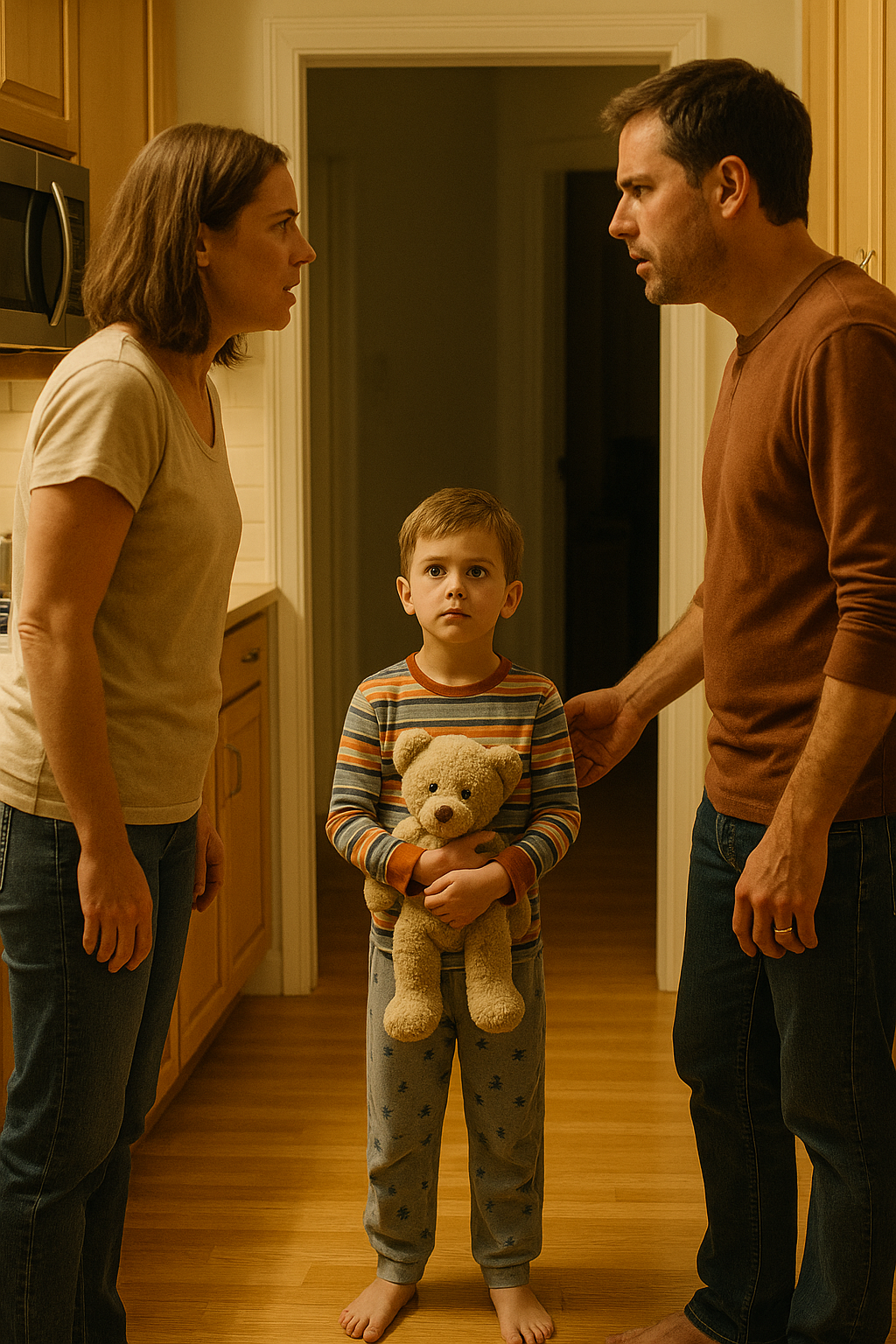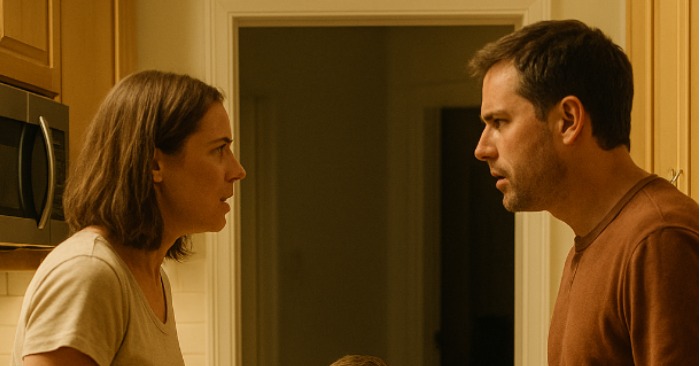The argument started the way most of them did — small, almost unnoticeable. A sigh about chores, a sharp word about bills, a complaint about who was too busy and who wasn’t busy enough. It never took much. One spark, and suddenly, the air in the kitchen was heavy, filled with voices that climbed higher and sharper until the whole house felt tense.
We promised ourselves once that we would never fight in front of the kids. We swore that we’d protect them from the noise, that our disagreements would stay behind closed doors. But promises like that are easy to make and hard to keep.
That night, like too many nights before it, we broke the promise. And it changed everything.
We stood in the kitchen, plates from dinner still stacked in the sink, both of us too angry to care about the mess. Our words weren’t cruel, not exactly, but they carried the sting of frustration. The kind of frustration that builds slowly over years — unwashed dishes, late nights at work, unspoken resentments.
I don’t even remember the exact words we shouted. Isn’t that the strange thing about arguments? The words fade, but the feelings linger like bruises.
What I do remember, vividly, is the moment the storm broke — not because we reached a conclusion, but because of the small voice that cut through the chaos.
He must have come from the hallway, soft footsteps that neither of us noticed in our haze of anger. When I turned, he was standing in the doorway — our son, clutching his stuffed toy with both hands.
His pajamas were slightly wrinkled from bed, his hair sticking up in little tufts. He wasn’t crying, but his eyes… his eyes said everything. Wide, searching, disappointed.
We froze, mid-sentence. The sight of him watching us hit harder than any insult could. We had been so focused on winning against each other that we forgot we were losing in front of him.
For a second, none of us spoke. The room was heavy with silence, broken only by the faint hum of the refrigerator. Then his voice, small but steady, filled the space:
“Why do you fight if you love each other?”
Neither of us moved. Neither of us had an answer. The anger that had felt so urgent seconds before evaporated, replaced with a hollow ache in my chest.
I wanted to explain — to tell him that adults sometimes argue, that it didn’t mean we didn’t love each other. But in that moment, every excuse I thought of felt flimsy. Because he was right. How could we preach love, patience, and kindness to him while showing the opposite to each other?
His question was like a mirror, forcing us to see ourselves the way he saw us. We had told him again and again that love meant being gentle with your words, apologizing when you hurt someone, listening even when you don’t agree. And yet here we were — loud voices, harsh tones, stubborn silence.
The truth is, kids notice more than we think. They may not understand every word, but they feel the tone, the energy, the tension that hangs in the air. And in that moment, I realized we weren’t just arguing. We were shaping the way he thought about love.
My partner and I exchanged a look. No words, just a shared understanding that this couldn’t go on.
I knelt down, pulling him into my arms. “You’re right,” I whispered, my voice breaking. “We shouldn’t fight like that.”
My partner joined us, resting a hand on his back. And just like that, the fight was gone. Not resolved, not erased — but irrelevant compared to the little boy standing between us.
In his innocence, he had reminded us of something we had forgotten: love is supposed to heal, not harm.
After he went back to bed, my partner and I sat in the quiet kitchen, the glow of the overhead light washing over us. We didn’t rehash the fight. We didn’t try to prove who had been right or wrong. His words had already decided it for us.
We made a promise that night — not that we’d never argue again, because disagreements are inevitable. But we promised to be mindful. To pause before letting anger spill into shouting. To remember that our son was always listening, always learning from the way we treated each other.
Because parenting isn’t just about teaching with words. It’s about teaching with actions. And that night, our actions had failed him.
I’ll never forget the way his voice sounded — soft but certain, curious but also deeply wise. Sometimes children see truths that adults are too clouded to recognize. They remind us of the promises we once made, the ideals we once held, before stress and exhaustion dulled our edges.
That one question — “Why do you fight if you love each other?” — still echoes in my mind. It reminds me every day that love isn’t proven in declarations, but in patience, in respect, and in choosing kindness even when it’s hard.
That night could have ended like all the others — with slammed doors and heavy silence. But instead, it ended with something else: clarity.
Our child didn’t just stop a fight. He handed us a lesson we’ll carry for the rest of our lives.
Because sometimes, the most powerful reminders don’t come from mentors, books, or years of wisdom. They come from the smallest voice in the room, asking the simplest question, at exactly the right time.







